The power of tradition is found in the emotions people attach to various acts, symbols or practices. Traditions handed down from generation to generation bring a sense of continuity. They bring to mind emotions of past experiences and provide a strong emotional bond across time and distance. In times of bereavement, traditions can even bring a sense of comfort. Cultures, and even individual families, have cherished traditions that are valued for their significance.
Traditions bring beauty and meaning to many areas of life. While religious belief should be founded upon Scripture rather than tradition, there are many other areas in which tradition can greatly enrich the lives of those involved. A wedding is one rite that has many traditions.
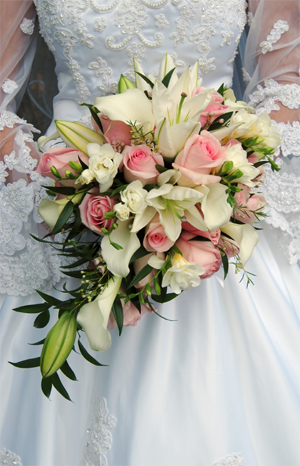 For couples who wish to establish their marriage on Scripture and Scripture alone, laying aside everything that has overtones of “Babylon,” numerous questions arise. What is a Biblical wedding ceremony? Must the wedding take place in a church? Can it take place in a court of law? Is it wrong to get a “legal” marriage license, or should one only take vows in front of one’s friends and family? Does the Bible establish what time of day a wedding should take place? What about “traditional” wedding attire? Are Yahuwah’s people to wear wedding rings?
For couples who wish to establish their marriage on Scripture and Scripture alone, laying aside everything that has overtones of “Babylon,” numerous questions arise. What is a Biblical wedding ceremony? Must the wedding take place in a church? Can it take place in a court of law? Is it wrong to get a “legal” marriage license, or should one only take vows in front of one’s friends and family? Does the Bible establish what time of day a wedding should take place? What about “traditional” wedding attire? Are Yahuwah’s people to wear wedding rings?
These are all legitimate questions. Scripture does not provide specific instructions on how a wedding is to be conducted. However, the principles the Bible gives does provide a basis for answering every question.
Various cultures have different definitions of what constitutes a wedding. Since Scripture is silent on how to conduct a marriage ceremony, it is perfectly acceptable to incorporate the various traditions your individual culture finds meaningful and beautiful into a wedding.
What joins two individuals together into one married unit is not the location; it is not the flowers, or the clothes, the cake or wedding rings. It is the vows they take before Yahuwah and the wedding guests who serve as human witnesses to the ceremony.
The joining together of a man and a woman in marriage is often referred to as “holy matrimony.” It is a sacred relationship that differs from every other friendship or partnership one may have. At Creation, Yahuwah created both sexes. It was in the union of both male and female that the character of Yahuwah was to be revealed to all created beings:
And . . . [Elohim] said, Let us make man in our image, after our likeness: and let them have dominion . . . over all the earth, and over every creeping thing that creepeth upon the earth. So . . . [Elohim] created man in his own image, in the image of . . . [Elohim] created he him; male and female created he them. (Genesis 1:26, 27, KJV, emphasis supplied.)
Marriage is therefore much more than a legal agreement between two parties. It is a covenant witnessed to and blessed by the Creator.
In the human legal system, marriage is viewed as a legal contract. As such, not just any one is allowed to perform wedding ceremonies. Only those who have been given the proper authority by the state are allowed to conduct a marriage ceremony.
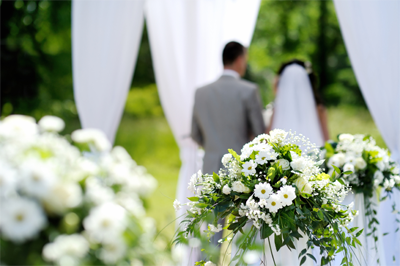 For believers, marriage is much more than just a legal contract. It is a covenant – an agreement binding under the laws of the Kingdom of Heaven, and witnessed and sanctioned by the great Law-giver. A contract is binding in human courts of law, but a covenant, undertaken by solemn oath and witnessed by the Sovereign of the universe Himself, is much more binding. As such, the laws of human courts might break the “legal contract” of marriage, but the covenant would still remain binding under the laws of the Heavenly court.
For believers, marriage is much more than just a legal contract. It is a covenant – an agreement binding under the laws of the Kingdom of Heaven, and witnessed and sanctioned by the great Law-giver. A contract is binding in human courts of law, but a covenant, undertaken by solemn oath and witnessed by the Sovereign of the universe Himself, is much more binding. As such, the laws of human courts might break the “legal contract” of marriage, but the covenant would still remain binding under the laws of the Heavenly court.
The realization that it is the vows taken before Yah that solemnize any wedding have led many to question whether it is necessary or even advisable to be “legally” married with a marriage license in a ceremony performed by an official with state-administered authority to perform marriages. When a government issues a “license,” implied in that act is the acknowledgement that what the government can give permission to do, it can also revoke and refuse you the right to marry. Typically, the government does place certain restrictions on marriage. Most governments refuse to allow marriages:
- Between individuals too closely related, whether that be siblings, parent/child relationships or, sometimes, cousins
- Between persons of the same gender
- Between a person and an animal or other non-human entity
- If one or both parties are below a certain age, in order to protect minors from statutory rape
- If one or both parties are already married
It is true that a marriage license does not make you married in the eyes of Heaven. However, that does not mean that a couple joining their lives together in marriage should refuse to follow the legal requirements for marriage that govern the country in which they live.
Let every soul be subject to the governing authorities. For there is no authority except from . . . [Yahuwah], and the authorities that exist are appointed by . . . [Yahuwah]. Therefore whoever resists the authority resists the ordinance of . . . [Yahuwah], and those who resist will bring judgment on themselves. (Romans 13:1, 2, NKJV)
Centuries ago in England, marriages conducted in the traditional manner, with an exchange of wrist bands and without the presence of a priest, were called “common law” marriages. These were considered legally binding 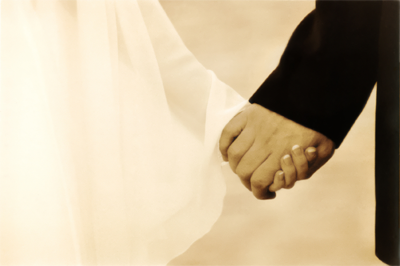 marriages and it created a widespread scandal when one early Saxon king set aside his common law wife in favor of a new union with a different woman, blessed by a priest. All countries had some form of this sort of marriage.
marriages and it created a widespread scandal when one early Saxon king set aside his common law wife in favor of a new union with a different woman, blessed by a priest. All countries had some form of this sort of marriage.
With the spread of the Roman Catholic Church throughout Europe, common law marriages fell into disfavor. Only those marriages “blessed” by a priest were considered morally binding. Finally, in 1753, England outlawed common law marriages under the Marriage Act. Henceforth, marriages had to be performed by a priest of the Church of England, save for Jews or Quakers.
Even today, many countries allow for “common law” marriages because they recognize that the right to marry existed before established governments, so the institution of marriage predates established law. That said, even those governments which acknowledge the validity of common law marriage as a right, do not always recognize as a married entity those who do not possess a state-administered marriage license. This is a concern because of how it affects other legal issues.
A marital relationship effects property ownership, rights of survivorship, spousal benefits and many other marital amenities, including, among other things, tax percentages. Registering the marriage with the proper legal authorities is imperative for the protection of the individuals involved. Furthermore, if the couple should have children, it is a legal protection for the children as well that should not be ignored simply because it is a human government issuing the legal paperwork.
A marriage license affords a certain level of protection in the event of the death of a spouse or a divorce. Governments which recognize common law marriages typically demand some form of proof of the common law marriage if it is challenged in court or if proof of the marriage is needed in order to settle a deceased partner’s estate.
The common law does not so much "control" the act of getting married, or "establish" a marriage, as it sets out the markers that can be used to determine whether a man and woman are in fact married, or whether they are simply using the word "married" without the existence of any of the fundamental elements being present that society understands to accompany a true marriage. In short, common law does not operate upon a marriage unless or until the validity of a marriage is challenged in court. At that time, the court will use the common law standards that have evolved to decide if the alleged marriage was truly established as such.1
Although “common law” marriages are legal in some countries, there is a broader principle involved that should be considered. That is the importance of avoiding the appearance of evil. With the lowering of morals 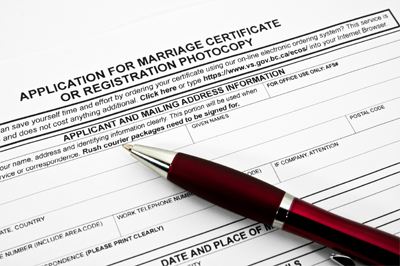 throughout all of modern society, more and more people are “shacking up” – living together without the benefit of marriage. When a couple lives together without doing the necessary paperwork required by their individual government to have a legally recognized marriage, it has the appearance to others of simply “living in sin.” While one’s own relatives and family may have witnessed vows spoken before Yahuwah, the appearance to others is that the couple is not committed but are simply “bed buddies” for the obvious reason.
throughout all of modern society, more and more people are “shacking up” – living together without the benefit of marriage. When a couple lives together without doing the necessary paperwork required by their individual government to have a legally recognized marriage, it has the appearance to others of simply “living in sin.” While one’s own relatives and family may have witnessed vows spoken before Yahuwah, the appearance to others is that the couple is not committed but are simply “bed buddies” for the obvious reason.
Yahushua recognized the importance of avoiding the appearance of evil. On those issues that do not violate the law of Yahuwah but would give offense if convention were ignored, Yahushua’s example taught that human convention should be followed.
One day, those who collected the temple tax “came to Peter and said, ‘Does your Teacher not pay the temple tax?’ ” (Matthew 17:24, NKJV).
Peter perceived an implied criticism of his beloved Master and quickly leaped to His defense. Yahushua was not a lawbreaker! So he said, “Yes!”
Peter did not realize it, but to the great satisfaction of the Saviour’s enemies, he had just as much as admitted that Yahushua was not the Messiah [Anointed One]! In the Hebrew economy, no “anointed ones” be they king, prince, priest or rabbi, were required to pay the temple tax. As the Messiah and a well-respected rabbi, Yahushua technically did not have to pay the tax.
Yahushua did not scold Peter. He knew that Peter had blundered only in trying to defend Him. Patiently, Yahushua explained to Peter why the tax collectors had questioned him and why the Saviour legally was not required to pay the tax. His very next words contain instruction for all who question the legal right of governments to require that which the divine government does not require:
“Nevertheless, lest we offend them, go to the sea, cast in a hook, and take the fish that comes up first. And when you have opened its mouth, you will find a piece of money; take that and give it to them for Me and you.” (Matthew 17:27)
“Lest we offend them.” Yahushua, as the Messiah, did not need to pay the tax. However, in order to avoid giving offense, Yahushua instructed Peter to pay the tax anyway – and He worked a miracle in providing the money for the tax that reaffirmed His tax-free position!
This is the stance that all who seek to honor Yahuwah should take. The government of Heaven may not require a state marriage license; however, “lest we offend” every precaution should be taken to avoid giving the 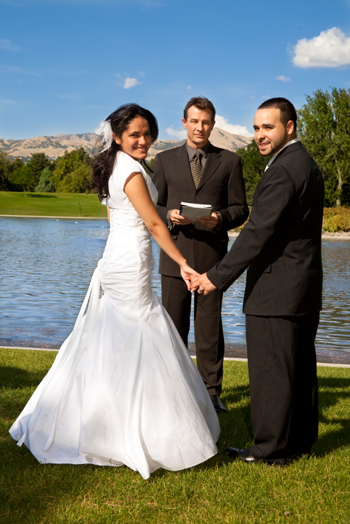 appearance of evil. If a simple marriage license avoids giving offense, none should refuse to obtain one.
appearance of evil. If a simple marriage license avoids giving offense, none should refuse to obtain one.
The next question that arises is where to have the wedding and who should officiate? Is it necessary to hold the wedding in a church in order to obtain Yahuwah’s blessing? This is especially problematic for those who have stepped free of organized denominations.
Here, different customs and laws will somewhat regulate the answer. In North America, pastors are vested with proper authority by the state to perform marriage ceremonies. If the couple has a relative that is a pastor and it would be meaningful to them to have the relative perform the wedding, there is nothing wrong with getting married that way. Once a person understands the fallen state of the churches, however, it is inappropriate to get married in a church. No Israelite would have gotten married in the Temple of Venus, goddess of love, simply because it was a beautiful location in which to get married. Likewise, Yahuwah’s people who are heeding the call to leave Babylon will not choose to marry in a church.
Some of the most beautiful weddings take place out of doors. Adam’s and Eve’s wedding took place in a garden. Other suitable places for weddings are family homes or, for a wedding too large for a private home, a rented hall or hotel convention room can also host the wedding.
Many countries do not give pastors the legal authority to perform marriage ceremonies. In such countries, those who want a religious ceremony, have two: they get married by the proper legal authority at the courthouse and then have their union blessed in a religious ceremony elsewhere. There is nothing wrong with getting married at a courthouse by a judge or other official. What is important is that wherever the wedding takes place, regardless of whether a pastor or court official performs the ceremony, it is recognized as a solemn and yes, holy occasion where a covenant is ratified. The presence of one’s friends and family as supportive witnesses are usually an important part of such an occasion.
There are other factors that should not be ignored simply because they are not Biblical “commandments”. Each culture has its own traditions that bring beauty and meaning to 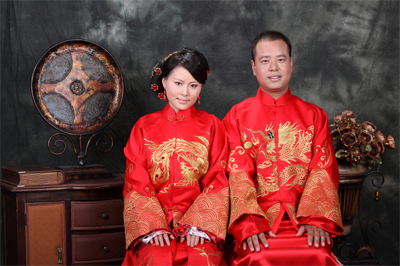 the wedding ceremony. An Israelite groom would write up a marriage contract that he presented to his intended bride. This contract, called a ketubah, was presented to the bride at a special meal prepared by her family.
the wedding ceremony. An Israelite groom would write up a marriage contract that he presented to his intended bride. This contract, called a ketubah, was presented to the bride at a special meal prepared by her family.
In it, the groom expressed his love for his bride and presented his promises to the bride and her family. He outlined how he planned to protect and provide for her and any children they might have, how he wanted their household run and the children raised.
After presenting the marriage contract to the bride, he would pour a glass of grape juice, the best quality he could afford, and take a sip. The young woman would then take the ketubah and study it. She would carefully consider every point and whether or not this was a contract she wanted to accept and live by. It might take some time for her to go over it. There was no rush. When, after careful consideration, she would decide to accept the ketubah, she would also take a sip of grape juice and from that point they were considered betrothed.
The various wedding traditions of the different cultures help to contribute to the solemnity of this agreement which is both a legal contract as well as a divinely witnessed covenant. During the days of intense persecution by the Roman Catholic Church, the Huguenots and Waldenses were forbidden to hold any religious services. They could only hold weddings and funerals. Under those circumstances, weddings became very religious, sacred ceremonies, for it was one opportunity when the faithful could safely meet together. Such sacred solemnity brought to the wedding ceremony is very appropriate and surely has Heaven’s blessing more than the casual, often joke-filled ceremonies of today.
Different cultures hold weddings at different times of the day. Hebrew weddings were performed at night. The starry heavens spanning over head were a reminder to all of Yahuwah’s promise to Abraham that his descendants would be as the sands of the sea and the numberless stars of the heavens. Again, though, this is not a Biblical mandate. It was merely a tradition that added beauty and meaning to Hebrew weddings.
In England, it is common practice to hold weddings in the morning. In fact, at one time, it was not even legal to perform a marriage ceremony after noon. In North America, on the other hand, weddings typically take place in the afternoon, with the most formal weddings occurring in the evening. No one practice is correct, with all the others wrong. The couple should marry at a time most convenient and meaningful to them.
No one should feel it necessary to spend more money on the wedding than the individuals involved can afford. However, care should still be taken so that each one entering into the marriage honors the other. In many cultures, red is the traditional color worn to celebrate a marriage and white is worn for mourning. In Western societies, where black is worn for mourning, white is worn as a symbol of purity. While it is not necessary to spend a lot of 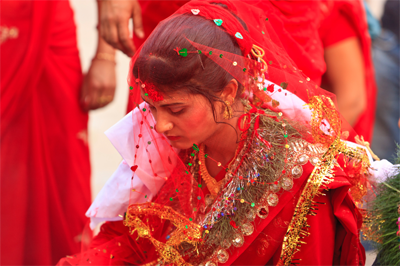 money on wedding attire, wearing special clothes is one way the groom honors his bride, and she honors her intended husband.
money on wedding attire, wearing special clothes is one way the groom honors his bride, and she honors her intended husband.
Wedding bands originated in paganism and are not necessary in order to be married. The gold circle was a symbol of the sun. It was placed on the “ring finger” of the left hand because it was believed that a vein ran from that finger directly to the heart, the seat of the affections.
Such a symbol, grounded in paganism, is not appropriate for Called Out Ones who would leave Babylon behind. In many cultures, however, the absence of a ring can lead to the assumption that the couple is living together without benefit of marriage. If a newly-wed couple finds themselves in such a situation, a simple band, worn by the woman for a few weeks until her reputation as a married woman is established, is sufficient to communicate her status and avoid the appearance of evil. Once this has been accomplished, the wedding band can be laid aside as unnecessary adornment.
Every effort should be made to bring significance and meaning to this special occasion. Little girls grow up dreaming of the day when they become a bride and a loving groom will do everything in his power to support and nurture his chosen as she transitions into being the wife of his dreams.
While most young couples look forward to the wedding ceremony as the start of their married lives, older couples who have been married longer realize, in retrospect, that true married life begins during the first few days of married life. The honeymoon is truly the beginning of their lives as husband and wife. Long, expensive honeymoons are in no wise a necessity and none should go into debt in order to have a honeymoon. However, every effort should be made, to  the best of one’s ability, to have some private time together right at the beginning of the marriage.
the best of one’s ability, to have some private time together right at the beginning of the marriage.
Lifelong habits can be established during the honeymoon that will be a blessing to each through the rest of their lives. Having morning and evening “family worship” right from the first, setting aside time to pray together, to visit and listen to each other, will strengthen the marital bond and reap rich rewards in the coming years.
Yahuwah acknowledged the importance of strengthening the new relationship in the early days. He commanded that no man should be sent to fight in war during the first year of marriage. Rather, he was to remain at home to make his wife happy. Obviously, this does not mean that he was indolent and did not work. However, that first year was a special time when, as stated in Scripture, the two were becoming “one flesh.” It is only through shared life experiences that such a bond is forged and every newly wedded couple should endeavor to strengthen their relationship in the fear of Yahuwah.
The marital relationship was established by Yahuwah. With the Creator as the head of the home, marriage can truly be a blessing. As it took both a male and a female to reveal the “image of Yah,” so the union of a man and a woman can reveal precious truths about the heavenly Father. A couple committed to Yahuwah can be a shining light in this sin-darkened world. A wonderful influence for good can be exerted by the example of a godly marriage and Yahushua-centered home.
Heaven’s richest blessings may rest on those who, together, commit their lives in service to the Creator.







